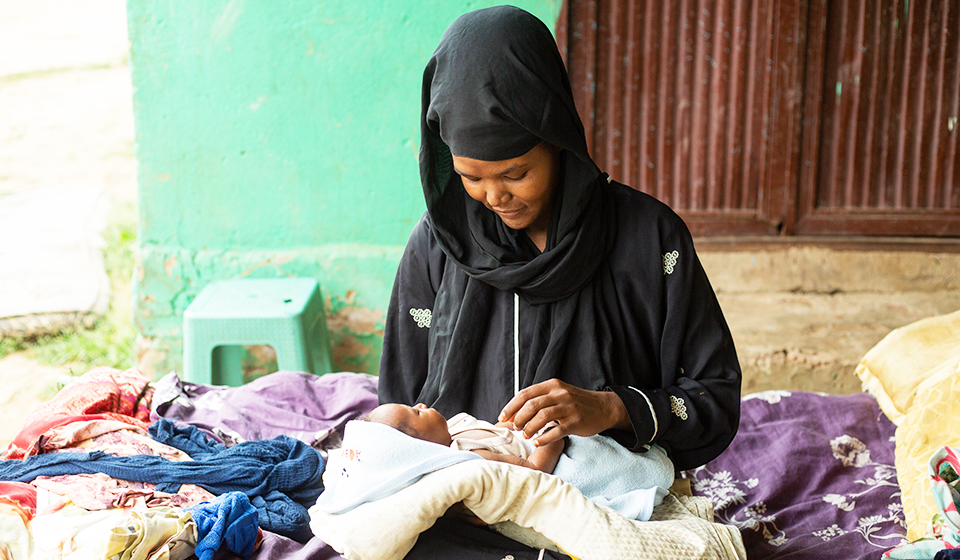
Sudan’s women and girls endure six months of conflict with no end in sight
Moatinoon
Lubna still remembers the sound of shelling in Khartoum, the capital city of Sudan, six months ago. The 34-year old was, at the time, mother to six children and pregnant. I was wondering how I can guarantee the safety of my unborn child, my six children and my own safety, she recently recalled to UNFPA, the UN sexual and reproductive health agency. Who will give me a helping hand in these terrible circumstances? I did not know what to do.
Her family was among some 3 million people forced to abandon their homes in Khartoum following the outbreak of violence on 15 April 2023 between the Sudanese Armed Forces and the Rapid Support Forces. Since the fighting started in mid-April, nearly 6 million people have fled their homes, seeking refuge elsewhere within Sudan or in neighboring countries.
Among the 4.5 million people internally displaced across Sudan, an estimated 1,062,000 are women and girls of reproductive age, and an estimated 105,753 are currently pregnant and in need of timely access to lifesaving and essential reproductive health services.
For Lubna, as for so many others, the outbreak of violence was only the start of an ongoing ordeal.
It was not until late June that the family was able to flee Khartoum -- Lubnas husband, Omar, had spent weeks scraping together enough money for transport. The journey itself required an arduous 15-hours of travel to Kosti, in White Nile State. Lubna, by then, was seven months pregnant.
When they finally reached the city of Kosti, the family was directed to an area known as the Ezzedine gathering site for displaced people. In the weeks that followed, they made their home in a school serving as a shelter.
Living in this temporary refuge has been challenging, but one thing Lubna did not have to worry about was reproductive health care. Immediately upon arrival, Lubna received medical attention at a UNFPA-supported mobile clinic, including an examination, medication and also psychosocial support. Thereafter, she was able to receive routine care.
Lubna had frequent pregnancy checks at the clinic, said Aisha, a midwife at the mobile clinic. Lubna also received a clean delivery kit, containing sterile supplies to facilitate a safe birth. The kits are disseminated in humanitarian contexts in case women end up delivering at home or in a poorly equipped facility.
Fortunately, Lubna was able to deliver at the mobile clinic. On 12 September, at 10:00 in the morning, Lubna gave birth to a healthy baby girl.
For staff at the mobile clinic, Lubnas safe delivery was especially heartwarming -- a happy story amid the chaos of conflict. Lubna was one of the first registered patients at the reproductive health mobile clinic, said Dr. Ruaa, who works in the clinic. We hope that all pregnant women in the gathering site give birth safely.
Source: https://www.unfpa.org/news/sudan%E2%80%99s-women-and-girls-endure-six-months-conflict-no-end-sight

